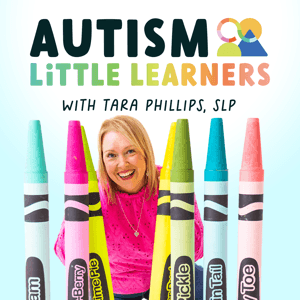Guest: Stephanie LoPresti, MS, CCC-SLP, TSSLD
Earn 0.1 ASHA CEU for this episode with Speech Therapy PD: https://www.speechtherapypd.com/course?name=Dynamic-Methods-to-Identify
In this episode of The Speech Link podcast, host Char Boshart and guest Stephanie LoPresti, a seasoned speech-language pathologist, discuss dynamic methods for identifying language abilities and therapy needs. The conversation covers financial disclosures, Stephanie's extensive experience in the field, and her commitment to early intervention. Stephanie shares insights into her passion for assessing young children, the importance of working within the zone of proximal development, and how she applies dynamic assessment techniques in various settings. Learn about practical strategies for engaging children in assessments, the role of parent and teacher collaboration, and the multifaceted nature of speech therapy. A must-watch for speech therapists seeking innovative and effective assessment methods.
Episode Timeline:
00:00 Introduction and Disclosures
00:54 Meet Our Guest: Stephanie LoPresti
02:26 Stephanie's Journey to Early Childhood Assessment
05:04 The Importance of Dynamic Assessment
06:09 Understanding the Zone of Proximal Development
11:56 Dynamic Assessment in Practice
27:58 Challenges and Techniques in Pragmatic Assessment
34:25 The Dynamic Role of Speech Pathologists
35:21 Understanding Developmental Milestones
37:20 Introducing the Protocol for Assessment
41:31 Dynamic Assessment in Practice
51:45 Engaging Parents in the Therapeutic Process
59:37 Closing Remarks and Acknowledgements
About the Guest: Stephanie LoPresti, MS, CCC-SLP, TSSLD, is a speech-language pathologist with over a decade of diverse experience in medical, academic, and private settings. She has served clients from infancy through geriatrics, and her expertise extends to speech and language disorders, feeding and swallowing, cognitive impairments, and augmentative communication. Stephanie exemplifies a special commitment to patient-centered care and is an experienced Clinical Fellowship and Speech-Language Pathologist Assistant supervisor. Most notably, Stephanie is the author of the comprehensive and evidence-based guide The Speech & Language Protocol: An Assessment Tool for Early Years. This resource enhances assessment and service delivery. In addition, she presents academic lectures and professional development seminars.











































